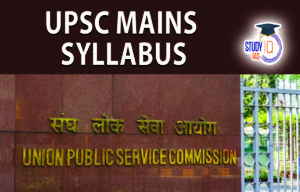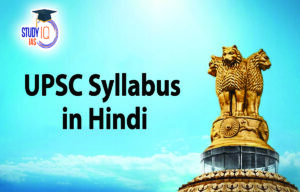Table of Contents
NCERT Books for UPSC are a crucial component of Civil Services Exam preparation since they assist in laying a solid fundamental basis before moving on to more difficult UPSC books. Books cover some of the most crucial topics on the UPSC syllabus for both the prelims and the main exams, despite being written for school students. Both exam gurus and top scorers highly recommend the UPSC Books for IAS preparation for the majority of the courses.
Which NCERT Books to Read for UPSC ?
The NCERT books’ strongest feature is their straightforward language, which is simple to memorise and provides a wealth of information on numerous important subjects. Candidates who are starting their preparation of UPSC can the important NCERT books to read for UPSC Exam 2024. The complete list of new and used books of NCERT to finish the exam’s required subjects is provided below.
Which NCERT Books are Important for UPSC ?
Finding the appropriate sources for the enormous UPSC Syllabus might be very difficult. The most pertinent NCERT Book List for UPSC, however, has been assembled by us according to subject. You could start off your preparation for the UPSC Prelims and Mains exams by reading these books.
The majority of the UPSC syllabus 2024 is covered by the prepared list of NCERT 6th to 12th Books. It is important to note that all NCERT books for UPSC can be downloaded by class if the applicants are preparing. The Important NCERT Books for UPSC Preparation has been mentioned below
| Important NCERT Books for UPSC Preparation | |
| NCERT Book of Class | NCERT 6th to 12th Books for UPSC |
| NCERT Book of Class 6th | History: Our Past, Science: Class VI Geography: The Earth Our Habitat Social Science: Social & Political Life I |
| NCERT Book of Class 7th | History: Our Past – II, Science: Science – Class VII Geography: Our Environment Social Science: Social & Political Life II |
| NCERT Book of Class 8th | History: Our Past III – Part I & II, Science: Science – Class VIII Geography: Resource and Development Social Science: Social & Political Life III |
| NCERT Book of Class 9th | History: India and the Contemporary World-I, Science: Class IX Geography: Contemporary India – I Political Science: Democratic Politics Part – I Economics: Economics |
| NCERT Book of Class 10th | History: India and the Contemporary World–II, Geography: Contemporary India – II Political Science: Democratic Politics Part – II Science: Class X Economics: Understanding Economic Development |
| NCERT Book of Class 11th | History: Themes in World History, Geography: Fundamentals Of Physical Geography India- Physical Environment Science: Chemistry: Unit 14, Biology: Unit 4 & 5 Economics: Indian Economic Development Sociology: Understanding Society Political Science: Indian Constitution at Work Indian Culture: An Introduction to Indian Art, Living Craft Traditions of India (Chapters 9 & 10 |
| NCERT Book of Class 12th | History: Themes in Indian History, Science: Chemistry: Unit 16, Biology: Unit 8, 9 & 10 Political Science: Contemporary World Politics Geography: Fundamentals Of Human Geography, India – People & Economy Economics: Introductory Macroeconomics Sociology: Indian Society, Social Change and Development in India |
Important NCERT Books for UPSC Download
One of the best resources for every UPSC aspirant is NCERT Books For UPSC Preparation. This is due to the fact that these IAS Books of NCERT provide a clear explanation of the fundamental ideas. The legitimacy of the content in these publications, which is supplied by government organisations, is another important reason why hopefuls consult them. So IAS aspirants should consult NCERT Books for UPSC.
NCERT Books for UPSC Prelims
The NCERTs are essential reading for the UPSC Prelims examination, at the very least. This is due to:
- Because they are written for schoolchildren, the NCERTs employ simple, straightforward language to teach fundamental ideas.
- Since the data in these publications is supplied by governmental organisations, they are accurate. You can trust the material provided in the NCERTs to be accurate when there are questionable facts regarding a certain subject (when numerous sources provide conflicting information).
- They provide knowledge that has been thoroughly researched.
- You can proceed to more advanced textbooks using the foundational ideas presented in these volumes.


 UPSC Syllabus 2025, Check UPSC CSE Sylla...
UPSC Syllabus 2025, Check UPSC CSE Sylla...
 UPSC Mains Syllabus 2025, Optional Sylla...
UPSC Mains Syllabus 2025, Optional Sylla...
 UPSC Syllabus 2025 in Hindi, डाउ�...
UPSC Syllabus 2025 in Hindi, डाउ�...





















